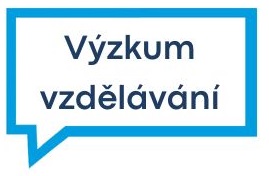Other
Keeping to Tradition in Czech Households
Keeping to tradition and folk customs is considered to be important by two thirds of citizens (66 %), while approximately three people out of ten (31 %) have the opposite opinion. Regardless of this, 99 % of households keep to tradition and customs at least in some cases. As far as traditional meals associated with some specific festive occasions are concerned, almost in all households (96 %) the traditional menu is prepared in connection with Christmas Eve, in two thirds at Easter, and in a half of households on New Year’s Day.
Migration in the CZ
Three fifths of Czechs over 15 years of age (61 %) have moved house at least once in the course of their lives, with 25 % moving only once, 19 % twice, 11 % three times and 6 % respondents said that during their lives they had moved more than three times. In the population over 19 years of age, two thirds (66 %) of inhabitants have experienced moving at least once. The ratio of people, who have never moved during their lifetime, is significantly higher in villages than in towns.
Satisfaction with Living in One’s Neighbourhood
Within the May survey Public Opinion Research Centre was asking questions about satisfaction with life in places, where people lived. The question “Are you satisfied overall with living in your neighbourhood?” was answered by 69 % of respondents saying they were satisfied with living in their neighbourhood, 6% expressed dissatisfaction and 25 % were undecided. Furthermore, respondents were asked if they considered moving from their neighbourhood.
Where Would You Most Like to Live?
The survey showed that 43 % of respondents would prefer an urban area as the place of their permanent residence, while the countryside would be chosen by 41 %. Two percent voiced other opinions and 14 % could not decide. As to places of urban character, a similar number of respondents chose cities with a population over 100 thousand (a total of 15 %) and towns of medium size with 20 thousand to 100 thousand inhabitants (16 %).
On pleasant and unpleasant things
The survey results reveal that we derive most pleasure from being given a present. This is followed by an afternoon’s relaxation with a cup of good coffee or tea, and by an evening spent in front of a TV. In general, we consider waiting for a late bus more annoying than getting up in the morning. The latter is, however, resented by younger generations in particular. Organisations conducting surveys of public opinion will be pleased to learn that we consider answering survey questions considerably less irritating than waiting for a late bus or getting up in the morning.
Whom and To What Degree Czech Citizens Trust
People put the most trust in those close to them and in themselves. From individuals, who influence the opinions of citizens, teachers and television and radio presenters enjoy the greatest trust. Confidence in public opinion researchers, newspaper journalists and mayors is considerably lower, and it gets even worse for priests. Trust in senators and politicians is very low, when only about every fifth respondent voiced his trust in them.
Appraisal of Institutions and Proposed Measures in connection with the August Floods and the Elimination of Their Consequences
42 % of citizens think that damages caused by the floods could have been prevented; on the other hand 44 % believe that these damages were predominantly inevitable. With the exception of the President, whose acts during the period of floods were perceived by the public mainly in a critical manner (62 %), all other bodies, involved in one way or another in activities connected with the flood disaster and in eliminating its consequences, are valued positively with great prevalence.
Appraisal of Standard of Education in the CZ and Attitudes of the Public towards Proposed Measures in the Education System
Respondents give the most favourable assessment to education at elementary schools and grammar schools. In case of pupils of elementary schools, development of independence is valued most favourably (51%) as well as a grasp of the world (50%), and for secondary school pupils it was acquisition of skills (71%). Large (78%) consensus exists for the possible extension of the possibilities of studying at universities, 65% of respondents expressed their disagreement with introducing school fees at universities and 34% of respondents agree with the proposal to cut down on the number of teachers and raise the salaries of those remaining.
What Damages Were Incurred by People from Floods
18 % of citizens, in whose place of living or its vicinity floods caused larger damage, noted down damage to “other” property of the family (a holiday house - etc.). 11 % of respondents mentioned a damaged flat/house and damage to trade. The open question of if people incurred harm or problems in connection with floods other than damage to property was answered by stating most often problems with transport, various psychological conditions – shock, grief over what had happened or possible fear of the floods re-occurring.
Opinions of Citizens about Causes of the Floods
People most often connect the August floods with a rare concurrence of weather factors and insensitive interventions in the landscape, which in the survey was unanimously supported by almost four fifths of respondents. Apart from this, about two thirds of respondents agreed that this year’s floods had also been caused by global climatic changes and insufficient flood controls.
Page 20 of 21








